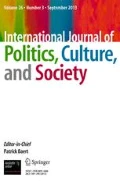The fall of the Berlin Wall and the conflict in Tiananmen Square—the most telegenic events of the year 1989—stimulated developments well beyond central Europe and unleashed imagination that brought about the end of apartheid and the emergence of the pro-democracy movements in many other parts of the world. As we approach the 20th anniversary of 1989’s nonviolent transformations, we believe that it is important not only to celebrate the collapse of communism and the achievements of other negotiated transitions but also to revisit them and to draw from them lessons for the future of democratic politics.
It is clear today that these nonviolent yet radical political changes contributed not only to major shifts of power but also to significant shifts in thinking about ways of ending dictatorships and instituting democracy. This is why in the current fall 2009 issue, as well as in the following winter 2009 issue of the Journal, we will revisit the momentous events and reflect upon the processes they launched, generating fresh insights into the inevitable and necessarily varied challenges faced by their respective societies while constructing democratic order.
To ask questions about the lessons learned and lessons missed from the “revolutions” of 1989 is more than a mere academic exercise, as it is of importance for future democratization projects throughout the world. This is why in the current and in the upcoming issue of the Journal, we bring together studies that grasp not only the variety of experiences—as they looked in central and eastern Europe, the Baltic countries, southeastern Europe (usually referred to as the Balkans), West Africa (Benin), or South Africa—but also various genres of intellectual reflection and analysis, from conversation (Havel–Michnik) to essays (Jonathan Schell, Jeffrey Goldfarb), to more classical analyses -anthropological, sociological, or legal.
The majority of the contributions are the result of a conference organized in April 2008 at the New School For Social Research by the New School’s Transregional Center for Democratic Studies, in collaboration with the Europe-based Research Network 1989.
Author information
Authors and Affiliations
Corresponding author
Rights and permissions
About this article
Cite this article
Matynia, E. Introduction: 1989 and Beyond: the Future of Democracy. Int J Polit Cult Soc 22, 253 (2009). https://doi.org/10.1007/s10767-009-9068-6
Published:
Issue Date:
DOI: https://doi.org/10.1007/s10767-009-9068-6

